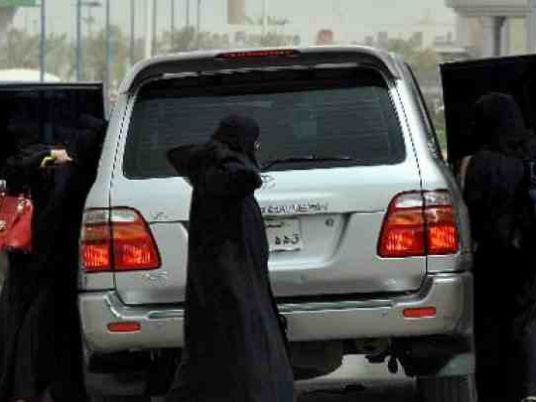
Saudi authorities have blocked the website of a regional human rights group which reported the case of a woman who tried to defy the kingdom's ban on female drivers.
Attempts inside Saudi Arabia to access the Internet site of the Gulf Centre for Human Rights (http://gc4hr.org) brought up a notice on Tuesday saying: "Sorry, the requested page is unavailable."
The website, still accessible outside Saudi Arabia, on Tuesday condemned the arrests of two activists, Loujain Hathloul and Maysaa Alamoudi, whose case has attracted worldwide publicity.
Border officers stopped Hathloul when she tried to drive from neighbouring United Arab Emirates into Saudi Arabia. Alamoudi, a UAE-based Saudi journalist, later arrived to support her.
Both were arrested, activists said.
Their arrest "forms part of an ongoing systematic policy of harassment by the Saudi authorities against activists who demand the women's right to drive a car in Saudi Arabia," the Gulf Centre for Human Rights said.
Conservative Saudi Arabia is the only country in the world which does not allow women to get behind the wheel.
On Tuesday the Gulf Centre for Human Rights posted a message saying it "deplores the blocking of its website… by the Saudi authorities and considers it as a form of repression that is part of intimidation patterns that are being used persistently in the kingdom these days".
It did not say what might have prompted the censorship, but said it occurred "at a time when human rights defenders are exposed to various kinds of harassment and arrests, arbitrary imprisonment and unfair trials that lack legal procedures and minimum international standards".
A court in Saudi ally and neighbour Bahrain on Monday sentenced in absentia the director of the centre, Maryam al-Khawaja, to a year's jail for assaulting police.
'Enemies of the Internet'
Khawaja holds Danish nationality and is a daughter of jailed Bahraini Shiite opposition figure Abdulhadi al-Khawaja.
Bahrain and Saudi Arabia are both ruled by Sunni monarchs.
The Gulf Centre for Human Rights has offices in Beirut and Copenhagen.
Reporters Without Borders, another watchdog, this year named Saudi Arabia as one of 19 countries where government agencies are "enemies of the Internet" for their censorship and surveillance.
An activist told AFP that Hathloul on Tuesday was being held at a jail in Saudi Arabia's Eastern Province, but it was unclear whether she had been charged with any offence.
Alamoudi was detained at a separate jail in the province, added the activist who declined to be named.
"Their phones have been confiscated. Their cars have been impounded," she said.
Before her arrest on Monday afternoon, Hathloul Tweeted that she had been stuck at the frontier for 24 hours waiting to cross from the UAE to Saudi Arabia.
Saudi border officers blocked Hathloul because she was driving, and asked her to wait until they received "orders from their superiors", activists said.
The interior ministry could not immediately comment on the case on Tuesday.
Hathloul was trying to make a point in her unusual attempt to drive through the border and knew that she would not be allowed to pass, the activist who spoke to AFP said.
During October, dozens of women drove in the kingdom and posted images of themselves doing so as part of an online campaign supporting the right to drive.
In response, the interior ministry said it would "strictly implement" measures against anyone undermining "the social cohesion".
Activists say the driving ban is not actually illegal but is linked to tradition and custom in the kingdom.
